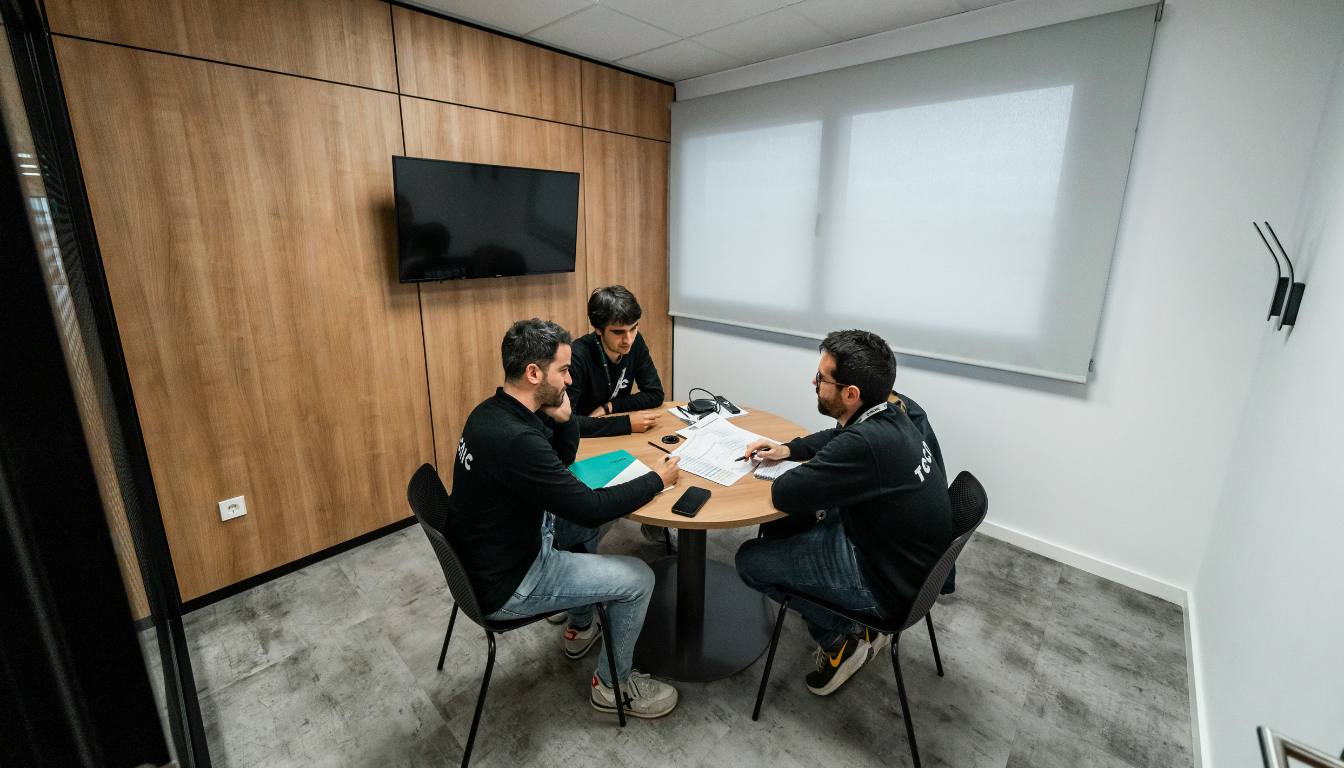Why Is Team Building Important? 10 Compelling Reasons

Team building is crucial because it strengthens the fabric of an organization. By enhancing communication, building trust, and boosting morale, team building activities lay the foundation for a productive team. This article delves into 10 compelling reasons why team building is important, providing insights on how these activities can transform your team dynamics.
Key Takeaways
- Team building enhances communication by fostering open dialogue and understanding among team members, promoting a culture of mutual respect and collaboration.
- It builds trust and collaboration within teams, leading to improved relationships, cohesiveness, and overall team performance through shared experiences and activities.
- Team building boosts employee morale and engagement, ultimately resulting in increased productivity, job satisfaction, and a positive work environment.
Enhances Communication

Effective communication is the bedrock of any successful team. Understanding different communication styles is critical, as they can vary significantly between team members. Team building helps team members understand their own and their teammates’ preferred communication styles, fostering an environment of mutual respect and understanding. This foundation promotes open communication, a key benefit of team building.
Active listening is crucial for effective communication and minimizing misunderstandings. Team building exercises help employees practice active listening, enhancing their ability to engage in meaningful dialogues. Encouraging feedback fosters a culture of openness, making collaboration easier.
Team building encourages open dialogue, letting team members express thoughts and concerns freely. This environment of easy communication not only promotes better relationships but also contributes to improved productivity and employee engagement. Effective team building nurtures a culture of communication, the cornerstone of any successful team.
Builds Trust and Collaboration

Trust is the glue that holds a team together, and team building is a powerful tool for developing this trust. When team members trust each other, they function as a harmonious unit and achieve common goals. Team building activities build trust among coworkers by requiring reliance on peers. This trust leads to a culture of camaraderie, creating a more cohesive team.
Collaboration improves when team members trust each other. Team building games boost collaboration and increases collaboration. They also help in fostering better relationships among other team members. For instance, obstacle courses where members guide blindfolded teammates are effective in developing trust and encouraging collaboration. These activities foster friendships and improve team performance.
team building exercises provide opportunities to develop unity and shared purpose. This sense of unity strengthens trust within the team, resulting in better collaboration and productivity. Team building creates a positive work environment where members feel connected and committed to achieving a common goal together.
Boosts Morale and Motivation

A motivated team is a productive team. Team building exercises boost morale by fostering friendships among employees. Enjoyable team building activities boost employee satisfaction and help them feel appreciated. This boost in morale is a key benefit of team building, contributing to a positive work environment.
Friendly competition in team building events stimulates enthusiasm and camaraderie. A team building event with challenges significantly motivates employees to strive for success. Acknowledging achievements during these events reinforces team success and builds individual confidence. This recognition is crucial for maintaining high spirits and motivation.
High employee engagement improves customer satisfaction and retention rates. Team building events foster a positive work environment, encouraging diligence and improving productivity.
team building activities boost morale and motivation, fostering a positive environment that enhances job satisfaction and promote team building to encourage employees.
Encourages Creativity and Innovation

Creativity and innovation are the lifeblood of any thriving organization. Team building activities enable employees to break away from their usual routines, which can lead to fresh ideas and innovative solutions. A change in environment promotes creativity. This shift in perspective fosters a culture of innovation.
Supportive teams encourage calculated risks and innovative ideas. Brainstorming ideas together enhances team creativity and results in inventive solutions. Hands-on physical challenges encourage creative ideas, problem-solving, and enhance collaboration skills. These effective teams break routine and encourage new ideas. An important strategy for success is fostering an environment where all team members feel valued.
Team building promotes brainstorming and collaborative problem-solving. Activities that involve collaboration can spark creative thinking by leveraging diverse perspectives within the team. Team building is an investment in fostering a culture of creativity and innovation.
Improves Problem-Solving Skills
Problem-solving is a critical skill in any workplace, and team building plays a pivotal role in enhancing it. Team building enhances problem-solving skills by improving team members’ ability to find solutions, make decisions, and work independently. Effective teamwork leads to quicker problem resolution and improved organizational efficiency. This efficiency is a key benefit of team building.
Collaborative problem-solving yields superior outcomes and reduces mistakes. Diverse teams generate innovative solutions, enhancing problem-solving capabilities. Activities like escape rooms and scavenger hunts require teamwork to solve complex challenges, honing problem-solving skills.
Team building activities offer team building opportunities for employees to learn from each other, and team members develop problem-solving skills in a supportive environment. Engaging in these activities leads to better relationships and improved productivity. Team building is important for fostering a collaborative workplace.
Identifies Strengths and Weaknesses
Team building is an excellent tool for identifying the strengths and weaknesses of employees. Team building activities offer learning opportunities and help employees discover hidden talents through collaboration. This discovery process is vital for personal and professional growth.
team building activities allow managers to observe and assess team dynamics, pinpointing individual strengths and weaknesses. In a low-pressure environment, employees can showcase skills and areas for improvement, enabling informed decisions about training and development. This insight is invaluable for building a balanced and effective team.
Increases Employee Engagement
Employee engagement is the emotional connection to their workplace, and team building activities enhance this connection. Team building activities can enhance employees’ emotional connections to their workplace, encouraging loyalty. This loyalty is essential for reducing employee turnover and fostering a stable workforce.
Strong inter-office relationships through team activities lower employee turnover. Team building increases engagement by ensuring active involvement in business processes. A teamwork-oriented environment retains employees and attracts new talent. Retention is a key benefit of team building, contributing to a positive work environment.
Team building fosters trust and values team relationships, improving retention. Engaged employees work diligently, contributing to better productivity and overall performance. Team building creates a happy, engaged, and productive workforce.
Connects Remote Teams
As remote work becomes the norm, team building is crucial for connecting remote teams. Virtual team building activities build relationships, foster community, and improve collaboration among remote teams. These activities provide remote employees opportunities to interact and bond, making them feel more connected and engaged.
A show-and-tell ice breaker is an example of a fun activity that serves as a team building activity for remote teams. Such activities encourage sharing personal stories and experiences, fostering camaraderie and mutual understanding.
Team building ensures remote teams feel connected and valued, despite different locations, as one team member plays a crucial role in providing team members how the whole team members work together towards the same goal, influencing the overall team dynamic.
Enhances Company Culture

Company culture is the heartbeat of any organization, and team building events enhance it. Regular team building events reinforce corporate culture by aligning employees with the organization’s values and mission. These events provide a platform for employees to connect with each other and with the company’s goals, fostering a sense of belonging and purpose.
team building initiatives contribute to a healthier work environment by promoting well-being. Fostering a culture of civility empowers employees to voice concerns without fear, which is essential for building an inclusive workplace. This sense of inclusion strengthens team dynamics and supports a positive, respectful environment. Beyond morale, civility at work is good for business—it enhances collaboration, reduces turnover, and boosts productivity by promoting trust and open communication among teams.
A positive workplace culture mitigates conflicts and enhances collaboration. Incorporating team building into daily work practices reinforces a collaborative culture. Team building creates a positive, inclusive, and collaborative company culture.
Reduces Workplace Conflicts
Workplace conflicts are inevitable, but team building activities can significantly reduce them. Team building fosters collective understanding, improving communication. Improved communication reduces misunderstandings and conflicts.
team building activities help employees appreciate diverse perspectives, fostering mutual respect. Empathy and emotional intelligence in leadership improve conflict resolution. Establishing conflict resolution guidelines helps navigate disputes effectively.
team building exercises equip members to identify and address issues before they escalate. These activities minimize disagreements and facilitate easier resolution. Team building creates a positive workplace where conflicts are minimized and resolved effectively.
Summary
In summary, team building is a powerful tool that enhances communication, builds trust, boosts morale, encourages creativity, and improves problem-solving skills. It helps identify strengths and weaknesses, increases employee engagement, connects remote teams, enhances company culture, and reduces workplace conflicts. Each of these benefits contributes to a more cohesive, motivated, and productive workforce. Companies like Offsite specialize in delivering expertly designed team building experiences that foster meaningful connections, align teams with company goals, and drive lasting performance improvements.
By investing in team building activities, organizations can create a positive work environment that fosters collaboration, innovation, and job satisfaction. So, take the first step towards transforming your team and harness the power of team building to achieve your organizational goals.
FAQs
- How does team building enhance communication?
Team building enhances communication by helping team members recognize various communication styles and encouraging open dialogue and active listening. This creates a more cohesive and effective communication environment.
- Why is trust important in team building?
Trust is essential in team building as it fosters collaboration and enhances productivity, leading to a cohesive and harmonious team environment. Without trust, teamwork suffers and overall effectiveness diminishes.
- How do team building activities boost morale and motivation?
Team building activities significantly enhance morale and motivation by fostering friendships, creating enjoyable experiences, and recognizing achievements, resulting in a more positive and engaged workplace.
- Can team building help remote teams?
Absolutely, team building enhances relationships and fosters a sense of community among remote teams, leading to improved collaboration and increased engagement.
You may also like
Unique spaces for your next offsite
Find distinctive venues for your upcoming corporate retreat.
Stay Updated with Our Insights
Get exclusive content and valuable updates directly to you.







